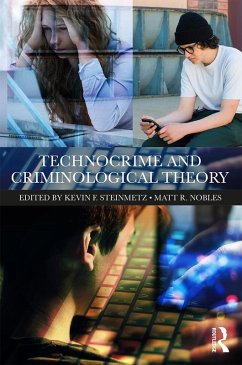Addressing both the conventional and radical theories underlying the emerging criminological trend of cybercrime, including feminist theory, social learning theory, and postmodernism, this text paves the way for those who seek to tackle the most pertinent areas in technocrime.
Dieser Download kann aus rechtlichen Gründen nur mit Rechnungsadresse in A, B, BG, CY, CZ, D, DK, EW, E, FIN, F, GR, HR, H, IRL, I, LT, L, LR, M, NL, PL, P, R, S, SLO, SK ausgeliefert werden.


